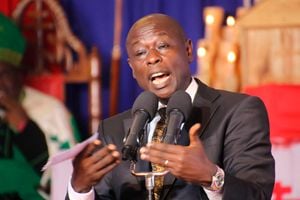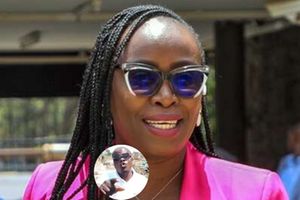So, why aren’t we putting our house in order way ahead of 2017 elections?
What you need to know:
- With only two years to polls, when will we fix our technology, reform the IEBC and achieve the gender rule?
From 2008 to 2013, fear of a possible repetition of the post-election violence of 2007/8 led to an almost constant focus on the need to ensure a credible and peaceful election in 2013.
However, following that election, a sense of fatigue and complacency has set in. This is problematic: it is 2015 and the time has come to start planning for 2017. But why is it so important to do this now?
First, most analysts agree that violence was avoided in 2013— not because underlying grievances and problems were addressed — but because of a contingency of factors that might not last the test of time.
For example, in a 2014 Journal of Eastern African Studies article, Nic Cheeseman, Justin Willis and I argue that Kenya avoided electoral unrest as a result of four interconnected processes.
First, a political realignment brought leaders of the formerly antagonistic Kalenjin and Kikuyu communities together in the Jubilee Alliance and gave them an incentive to defuse ethnic tensions.
Second, partial democratic reforms conferred new legitimacy on the electoral system and key institutions such as the IEBC and the Supreme Court.
Third, a new devolved system of governance meant that many voters who ‘lost’ nationally in the presidential election, ‘won’ in local contests.
Finally, memories of 2007/8, a popular commitment to non-repetition, a range of peace building and reconciliation activities, and strategic placement of security forces, produced a pervasive peace narrative, which encouraged Kenyans to vote in peace.
ONGOING ATTENTION NEEDED
Yet, the situation may well be different in 2017 or thereafter. The Jubilee Alliance may not last. Public confidence in the IEBC has dropped.
The younger generation will not remember 2007/8, and there may be less attention given to hate speech, early warning, and response.
In short, people should not feel complacent about future elections— as they did after the relatively peaceful polls of 2002— and ongoing attention needs to be given to ensuring a more stable and positive peace in the long-term.
Second, the absence of violence is not equal to a successful election.
Given this reality, there are a number of decisions that need to be made and plans that need to be put in place to safeguard and enhance the credibility of the country’s future elections.
First, is Kenya going to use technology again? The country does not need to use the same technology in the next election, but it can be made to work.
A decision therefore needs to be made about whether (and what) technology is going to be used, and how it’s going to be made to work.
Second, how are depleted levels of public confidence in the IEBC (especially in opposition strongholds) to be addressed prior to the next election?
Can the chairman and other commissioners remain, or do they need to go? What other reforms need to be made in the next two years?
Third, people seem to have forgotten that, according to the 2010 Constitution, no more than two thirds of any elected offices should comprise people of one gender.
Prior to the 2013 election, the Supreme Court ruled that the gender quota should be established progressively by August 2015, which is only eight months away.
However, there has been very little discussion about how to implement this quota, or whether to amend the Constitution.
This is important given the difficulty of enforcing such a rule in a first past the post constituency system, as compared to party list systems that characterise most other countries with gender quotas (such as South Africa and Rwanda).
In short, while 2017 may seem a long way away, it is fast approaching considering the difficult decisions that need to be made and the preparations that need to be put in place.
Lynch is an Associate Professor at the University of Warwick, UK.





